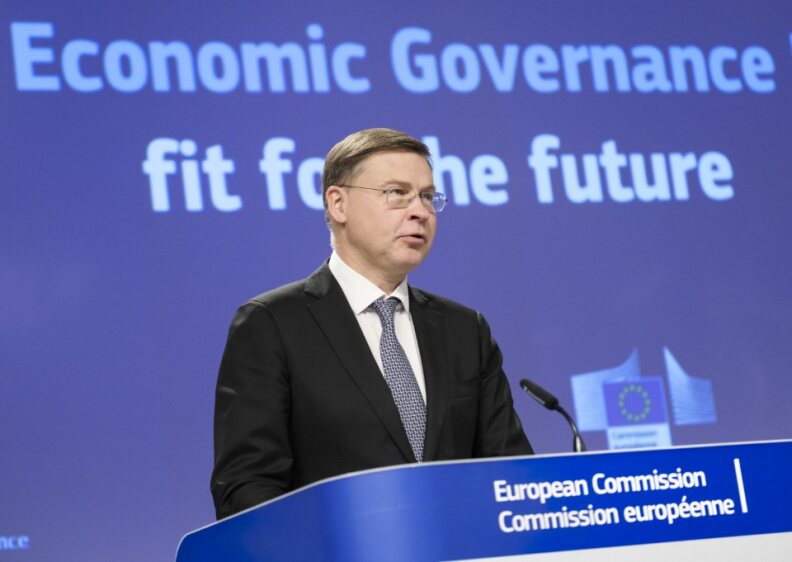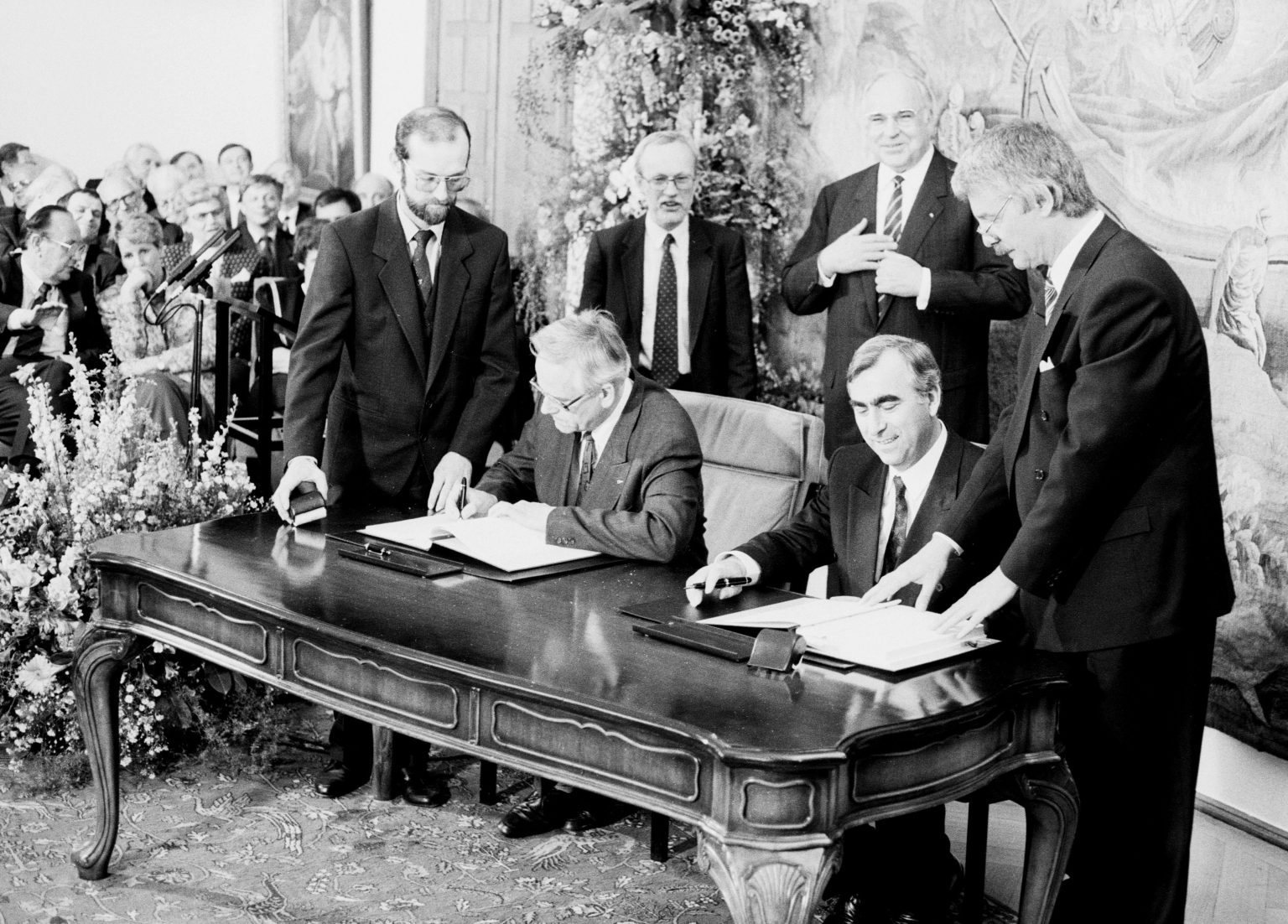The demise of economic science
On one side, a super-powerful man. The most influential and most watched politician on the planet; probably the only elected official who can surpass all pop culture celebrities in his ability to draw the world’s attention to himself without first dying violently (yes, he was a short step away from such a tragedy, but that is another story). For a politician, an admirable feat of its kind. In his hands, he holds a chart that has already been given his name and is poised to go down in history with him.
On the other, social science. It is also, at times, influential in formulating or opposing key political decisions affecting the running of states and the lives of their inhabitants.
The actors are Donald Trump and economics. These two have come into direct conflict, which is truly remarkable in circumstances and their manifestations. Hanging in the balance is the freedom of markets.
Why this economic shock matters
First, in his table of so-called “reciprocal tariffs” of the United States toward the rest of the world presented on April 2, President Trump definitively initiated his truly revolutionary economic policy, through which he intends to dismantle the existing order in international trade and economic relations. (In this text, I intentionally refrain from commenting on his actions in culture wars, security and defense.)
In doing so, Mr. Trump is effectively ending with a monumental bang the long era of globalization and worldwide openness, which the U.S., as hegemon, had all along dominated, guaranteed, enforced, long coveted and, also, benefited from. When the hegemon does not want to continue on its way, and there is no comparable replacement, the era ends in its present form by definition.
The gradual trend toward deglobalization and looking inward has undoubtedly been growing in the U.S. for the past many years – more strongly since the Covid-19 pandemic – and it has been taking place in both major American political parties. This point has been duly noted in prior reports. What has changed is that President Trump is now unleashing change in a flood, whereas the flow previously came via small rivers, streams and creeks.
It is also curious that an American president is radically going for the jugular of the world economy, and that his intellectual origins are clearly American, and that the entire argument and defense of this cut come from the same source. Judge for yourself.
Economics as an American science
In addition to being home to a disproportionately high number of excellent universities in overall global rankings, the U.S. also has a specifically overwhelming superiority in the science of economics. Of all Nobel Prize winners in economics, nearly two-thirds are American. But this is not enough to do sufficient service to this supremacy. Even among those who were born in other countries and who have the flags of their birthplaces next to their names (including Turkey, Finland, France or Hungary), with only a very few exceptions, the prize has been awarded to researchers who have worked academically and achieved their academic successes at American universities.
According to this criterion, the Nobel Prize in economics still ends up in America more than 90 percent of the time. And the few outlier institutions that have received the elusive recognition are British or European universities. (The prize is not a part of Alfred Nobel’s original legacy – Sweden’s Riksbank has bestowed the honor on laureates since 1968, the year the oldest central bank in the world celebrated its three-hundredth anniversary.)
No Asian universities have ever received this prize, although in other disciplines, the rankings of Asian universities have long since made their way into the world’s elites. In this respect, the U.S. is the genuine and unquestioned leader of global economic science.
When it is the American president, who − with little to no scholarly pushback − holds a spreadsheet that calculates, in a juvenile way, supposed tariffs and non-tariff barriers that other countries are allegedly imposing on the U.S., it seems that at least part of the American intellectual tradition of excellence in economics is suffering, or becoming cowardly. And when the rudimentary calculations of an entire spreadsheet are confirmed by the White House itself within 24 hours as the true basis of this monumental policy shift, and it is seriously, if with minimal disguise, conveyed that what appeared at first sight like an absurd division of two numbers is just that, surely the multitudes of sophisticated economists must be comatose.
This absence of intellectual rebuttal is all the more shocking considering one fundamental point. International trade is a field of economic science that is extremely consensual by the nature of the discipline. And scholars who would find it difficult to agree in other areas, such as tax or monetary policy, agree in their support for the benefits of specialization and the international division of labor.
International trade is a field of economic science that is extremely consensual by the nature of the discipline.
Ever since David Ricardo − the legendary British economist whose groundbreaking theory of comparative advantage fought from the earliest days against the protectionist Corn Laws in Britain and posthumously contributed to their repeal and thus to the consolidation of Britain as a 19th-century commercial and economic empire − free international trade has simply been regarded in economics as beneficial and useful to all its participants. Regardless of how absolutely efficient individual countries are in producing particular goods and services, the benefits from trade, specialization and the division of labor among them are, on average, shared by all.
President Trump’s earnestly communicated vision that the U.S. must never run a trade deficit in goods with any country in the future amounts to a ridiculous vision of turning the U.S. into a greater North Korea. And given the above-described tradition of economic thinking, his ideas conjure up an improbable parody where the head of the country with the world’s best-recognized medical faculties goes to congresses of hematologists demanding mass treatment of the population by bloodletting, saying that after all, it worked a few hundred years ago and our country was great then. So, it surely has to work again now.
Yet, currently, there is a surprisingly pronounced apathy in the economic community. Unlike in the 1930s, when America was plunging headlong into one of its most dramatic isolationist phases as a result of the Great Depression, and as President Herbert Hoover was introducing the Smoot-Hawley Tariff Act, there is no parallel in the U.S. today to the petition then of 1,028 American economists against the measures. The flawed monetary policy of the U.S. central bank at the time, some 90 years ago, exacerbated the economic crisis. The politically motivated increases in tariffs and trade restrictions that ensued were a knee-jerk reaction that destabilized the world overall and set the stage for World War II.
It is not enough to know some empirical truths and discuss them intelligently – and privately − in one’s own community.
The lesson? It is not enough to know some empirical truths and discuss them intelligently – and privately − in one’s own community. In times of upheaval, the ability and courage to convince the majority in an accessible way also matter very much.
In 2008, similar lessons seemed to have been learned from American economic policy to the benefit of the world. But now the outlook is bleaker. Worse still, it is probably the first time in modern history that the trigger for such massive wealth destruction has been the decisions of a single person. After all, I wrote here more than a year ago about the voice of economists not being louder at that turning point when the world was closing and denial of the accumulated knowledge was becoming widespread.
Intuition and common sense beating knowledge
It is worth exploring why expert knowledge that has served society well for generations is giving way to dubious claims and destructive policies.
First, probably because the culture wars have changed the entire public discourse. When universities can (sometimes, perhaps rightly) be labelled as being systemically “on the wrong side of history in these wars,” it is also possible to simply ignore much of the knowledge they have usefully accumulated. Enemies and adversaries are, after all, wrong by definition. Ordinary discussions end where facts begin. If facts and knowledge are not necessary – or convenient − for the discussion, then there is no need to spark any debate whatsoever.
Most importantly, in such an environment, one should not use “complex” and “unintuitive” arguments, which “the electorate will not believe or understand.” Economics is rich with insights that work in practice but may seem counterintuitive at first glance. For example, at a time of general price rises, central bankers need to make money more expensive and raise interest rates, not lower them as many believe. You could say the same thing about the intuitiveness of physics and celestial mechanics. After all, anyone standing still can clearly see that the sun rises in the east and sets in the west, and the observer has not moved. So, is the sun revolving around the Earth, or the other way around? Do I have a trade deficit with someone? That must mean he is stealing from me.
Second, when those who present their countries as burnt, ruined and devastated states where everyone is doing extremely poorly start to win systematically in the developed world (we know this all too well from many countries in Europe), quick, bombastic and intuitively acceptable, if factually flawed, solutions are a necessary consequence of such a portrayal of reality. This is because everything needs to be swiftly painted “white” after coming to power, typically by completely overturning anything that worked – perhaps even very well – before. So here, one piece of advice to agitators of all parties could be: Do not swing the pendulum too far in your own direction; its countermovement will swing it so sharply the other way that it will sweep away even what you and the other side would agree on in the middle.
In this context, it is even more piquant to recall that while Mr. Trump won his political battle to end the international trade system by arguing that the U.S. had been being ripped off for decades, it was America that remained the world’s largest economy all that time, with the deepest capital market, the most important currency and most impressive technological advances, as well as unrivalled cultural and soft-power supremacy. Meanwhile, on the contrary, Europeans now feel that they have fallen behind the U.S. in all these areas and are jealously trying to catch up. Wait a second: Catching up with a ruined country when we feel that Europe is ruined? Does all this make any sense at all?
Hardly, but for classical liberal economists and thinkers, there is at least a glimmer of hope in all this economic and political cacophony and in watching online the demise of economic science. For one thing, when accumulated knowledge has no influence, at least markets always have it in the end. Unlike in planned economies, the creators of dubious policy ideas – like Donald Trump – must take them into account, which they obviously do after all. Good for the markets.
But even more so is that, as the Western world gradually turns politically into sorrowful, irreconcilable collisions of progressive socialists with the nationalist variety, the tangible end of it all is already dimly, but promisingly visible somewhere in the distance. It was formulated so brilliantly by the non-economist Margaret Thatcher in her immortal pronouncement that both these groups will eventually “run out of other people’s money.” For market lovers, now is the time to be intellectually and psychologically prepared for just such an outcome.
This material was originally published here: https://www.gisreportsonline.com/r/demise-economic-science/































